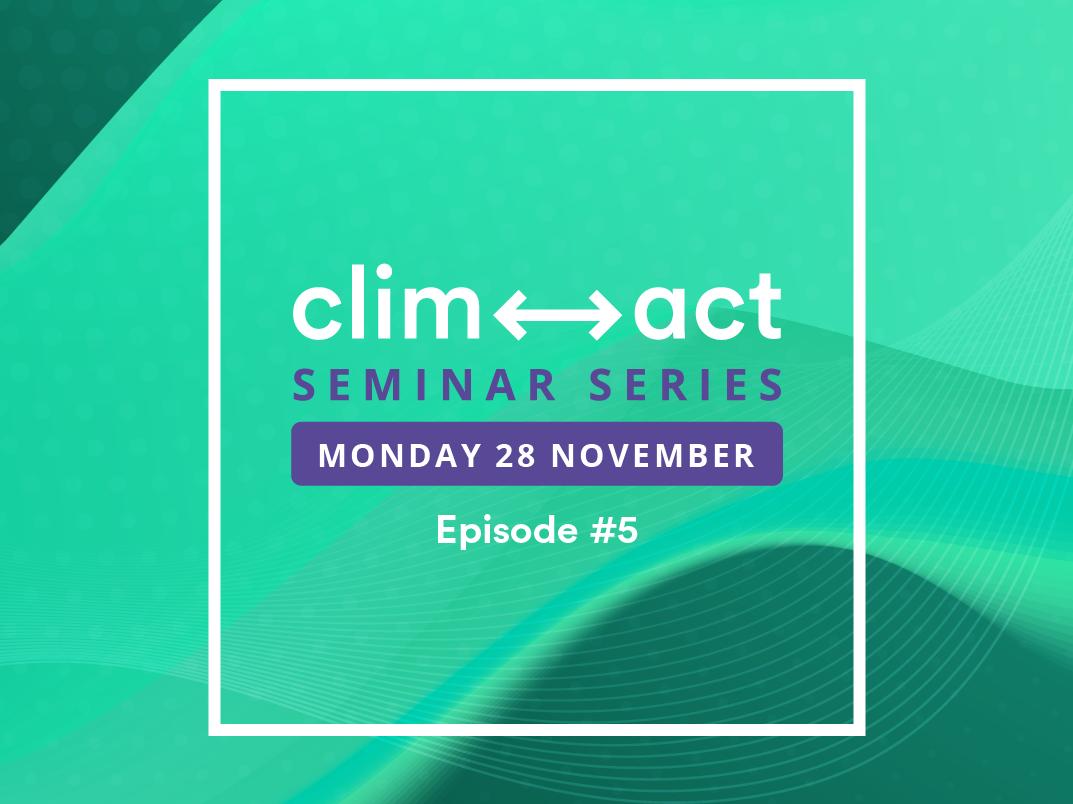3rd CLIMACT Seminar Series - Episode #5
Throughout this new series of seminars, CLIMACT and its guest speakers will explore solutions to transform society to fight climate change, adapt and mitigate further impacts. This third season of online CLIMACT seminars will take place on bi-weekly basis, from 12:00 to 13:15, starting on 3 October 2022. Participants are welcome to take part in the discussion in English or French.

Zoom link: epfl.zoom.us/j/63821341998
Degrowth and socio-economic transformations: barriers and ways forward
The presentation will define the concept of degrowth, explain why it is necessary and desirable. It will then discuss the main obstacles to degrowth as well as strategies for bringing about socio-economic transformations supporting a degrowth transition towards a post-growth society.
Presented by Pierre Kohler I Member of Degrowth Switzerland
Why consumers not always walk their talk – Discussing reasons behind selective sustainable behavior
Sustainability has arrived in the middle of society. More and more consumers try to be sustainable and consider sustainability as an important purchasing criterion. While the increased awareness is a positive trend, sustainable behavior does not translate into all areas of living/consumption. This resonates with the ongoing challenge of the so-called Attitude-Behavior Gap.
Despite its social and environmental relevance, sustainability is oftentimes limited to selected areas of life. While it is easy for us to be sustainable in some areas (e.g. food) and we are even willing to pay a premium price for the sustainable product, we find it more difficult to walk the talk in other areas (e.g. consumer electronics, travel).
The presentation aims to spark the discussion about how consumers make consumption choices and what role sustainability plays in various decisions. Considering that the consumption of products/services can offer multiple forms of value to the consumer (e.g. economic, social, hedonic, altruistic, etc.), one could approach the topic from a net-benefit point of view. When making decisions, we usually choose the option that promises the greatest benefit (e.g economic, social, hedonic, altruistic, etc.). Notwithstanding a consumer’s general attitude towards sustainability, the importance he/she ascribes to sustainability in different consumption situations might vary. This understanding is important for companies offering sustainable alternatives as it demonstrates that emphasizing sustainable features might be beneficial in some domains, while this approach might fail in other domains.
Presented by Pia Furchheim I Senior lecturer and researcher at the Institute of Marketing Management I Zurich University of Applied Sciences
CLIMACT